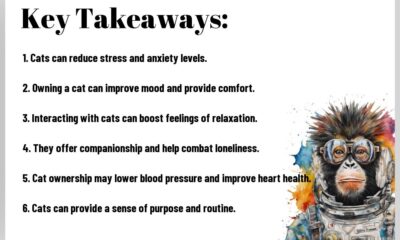Health & Society
French anti-cult law proposes to criminalise natural health
Vote on 19 December will decide the future of alternative medicine in France.
Next week in France, the parliament will decide whether or not to support a law that grants authorities the power to criminalise those who criticise or avoid conventional medical practices deemed ‘essential’, or use or promote natural or alternative medicines instead. Macron’s government plans to implement these powers by amending existing French law on sectarian drift which will be discussed and voted on by the French Parliament next Tuesday, 19 December.
If passed, individuals or organisations prosecuted under the new law will face jail sentences of between 1 and 3 years, and fines of between 15,000 and 45,000 euros.
The proposed change in law comes by way of amendments to a long-standing law intended to protect people from sectarian abuses, including terrorism and female genital mutilation.
It has been motivated by concerns expressed by French medical bodies and the government agency tasked with fighting so-called sectarian aberrations, the Interministerial Mission of Vigilance and Combat against Sectarian Drifts, Miviludes.
The Explanatory Memorandum for the proposed amendments asserts: “The [covid-19] health crisis provided an ideal breeding ground for these new sectarian excesses. New forms of “gurus” or self-proclaimed thought leaders act online, taking advantage of the vitality of social networks to unite real communities around them.”
Robert Verkerk PhD, founder, executive and scientific director of the Alliance for Natural Health International, said that the bill, No. 111 (2023-2034) of the French Penal Code “represents probably the most blatant legal attack on the practice of alternative and natural medicine anywhere in the world.” He continued, “If passed into law, those who speak out about the dangers of pharmaceuticals or vaccines and use alternatives will be declared sectarian deviants and will be turned into criminals.”
Legal experts suggest the proposed law would violate France’s Declaration of Human and Civic Rights of 1789, in which article 11 protects the right to freedom of expression. It would also infringe a rash of international conventions, including the United Nations’ International Covenant on Civil and Political Rights (Article 18), the Universal Declaration of Human Rights (Articles 2, 3, 7, 8, 12 and 18-20), the European Convention of Human Rights (Articles 9-11), the Charter of Fundamental Rights of the EU (Articles 6, 7 and 10-13), the Oviedo Convention on Human Rights and Biomedicine (1997) (Articles 2-6 and 10), and the Helsinki Final Act (1975) (Sections II and VII).
Professor Christian Perronne MD PhD, a former member of the European Technical Advisory Group of Experts on Immunization (ETAGE) of the WHO Regional Office, who was himself fully exonerated of all charges made by French medical bodies who challenged him when he criticised the government’s health policies during the covid pandemic, expressed his grave concerns for the bill.
In a recent article that he published on the BonSens association’s website, he said, “This law would make it possible to violently suppress what little freedom of expression remains in our beautiful, battered country. This would be a crime against science which can only progress through debate of ideas….This law would establish a de facto obligation to receive pharmaceutical substances, even experimental ones, against one’s will….This would be a violation of international conventions.”
French former presidential candidate, current member of parliament and president of the Debout la France party, Nicolas Dupont-Aignan, stated in a 42 minute video on the subject that, if the law is passed, “medical freedom in France is finished” and it will “call into question” the Hippocratic Oath.
Senator Alain Houpert has proposed the deletion of Article 4, the key amendment that targets unconventional health practices.
While breaching a clutch of international conventions, the new bill appears to pre-empt proposed amendments to the International Health Regulations (2005) that aim to cede control over “public health emergencies”, and responses to threats of such emergencies, from individual nations to the World Health Organisation. These amendments will be voted on at the 77th World Health Assembly next May.
The Alliance for Natural Health is urging French citizens, parliamentarians and those among the international community who are respectful of human rights and medical ethics to lobby the French parliament with the aim, at least, of ensuring Senator Houpert’s amendment to block Article 4 is supported.
To do otherwise would be a travesty to both human rights and medical ethics and will create even further sectarian divisions in French society.
Legal procedure
https://www.senat.fr/dossier-legislatif/pjl23-111.html
Article by Professor Christian Perronne on BonSens.org
Statement by Nicolas Dupont-Aignan
Extensive article by Robert Verkerk PhD, founder, executive & scientific director, Alliance for Natural Health International
https://www.anhinternational.org/news/french-anti-cult-law-proposes-to-criminalise-natural-health/
ABOUT THE ALLIANCE FOR NATURAL HEALTH www.anheurope.org www.anhinternational.org
Alliance for Natural Health (ANH) Europe is the European, Netherlands-based, non-profit office linked to the ANH International. ANH International is an independent, non-profit organisation founded in 2002 in the UK by acclaimed sustainability scientist, Robert Verkerk PhD. Its mission is to promote and protect natural, sustainable and regenerative approaches to health optimisation worldwide, through the application of good science and good law.
We work to help health systems to transition from their current pre-occupation with the
management of ‘downstream’ diseases to ‘upstream’ approaches that maintain and
regenerate health. ANH International advocates for properly informed consent, the right for citizen choice in healthcare and the right to practise a diverse range of modalities incorporating natural health. It supports individual empowerment, medical autonomy, the rule of law, and respect for, and the protection of, the natural environment.
We seek to increase the adoption of clinically validated, natural and sustainable approaches, taking into account cultural and individual needs and choices. The threat of legal and scientific uncertainty, as well as regulatory and corporate pressure, continues to limit freedom of choice in the field of natural health.
As an international alliance, we collaborate with a diverse cross-section of natural and environmental interests around the world, including scientists, lawyers, medical doctors, other health professionals, politicians, companies and, above all, the public.
Health & Society
What is tomato juice good for?
One of the most commonly consumed fruits is the tomato, which we often think of as a vegetable. The tomatoes juice is wonderful, we can add other vegetable juices, a little fresh lemon juice or consume it pure. If you like tomato juice, be sure to drink homemade, not from the supermarket.
In addition to being tasty, it is also useful, see why.
1. It is a rich source of vitamins A and C – Tomato juice is a great drink for strengthening immunity, which is also useful for the health of the eyes, skin, bones, teeth. Consumption of tomato juice is believed to help collagen synthesis. The drink also contains lutein and zeaxanthin, which together with vitamins A and C help fight free radicals.
2. Prevents High Cholesterol – Another reason to add tomato juice to our daily menu is that it can help balance cholesterol. Tomato juice is also rich in vitamin B3, which is known to stabilize cholesterol. The fiber in it can also lower blood pressure, scientists believe.
3. Aids in weight loss – Another great benefit of tomato juice is that it helps in weight loss. It is low in calories but provides us with important nutrients and hydration.
4. Improves bowel movements – The fiber in tomato juice keeps the liver healthy, aids digestion, reduces the risk of constipation and thus regulates and supports bowel movements.
5. Contributes to the detoxification of the body – The liver and kidneys are responsible for detoxifying our body and improving metabolism.
6. Rich in Lycopene – The red color of tomatoes is due to a fat-soluble antioxidant known as lycopene. Scientific studies have proven that lycopene protects the body from various types of cancer such as breast cancer, prostate cancer, colorectal cancer, lung cancer, coronary artery disease and others.
7. Energizes the body – Tomato juice is high in antioxidants that help eliminate free radicals in the body. In this way, not only the aging processes of the body are slowed down, but we also feel more energetic.
8. It is good for the heart – According to Western studies, the intake of lycopene can reduce the risk of coronary heart disease and cardiovascular diseases by 30%. Tomatoes are rich in lycopene.
9. It is good for bones – Vitamin K, which is contained in good quantities in tomatoes, is of great importance for bone health. The synthesis of osteocalcin, which is believed to play an important role in building bones, depends on vitamin K, scientists believe.
10. Strengthens the hair – We know that the way we eat determines to a large extent the condition of our hair. Just as there are foods and drinks that harm her, there are also those that are good for her. Tomato juice and the useful nutrients it is rich in contribute to improving the condition of our hair.
Health & Society
Cannabis use during pregnancy linked to increased risk of mental health problems in children
A new study presented at the European Psychiatric Association Congress 2024 reveals a significant association between prenatal cannabis use disorder (CUD) and an increased risk of specific mental health problems.
Cannabis remains by far the most consumed illicit drug in Europe. Around 1.3% of adults in the European Union (3.7 million people) are estimated to be daily or almost daily users of cannabis. Though males have a typically higher prevalence with regards to cannabis use, the latest statistics show that women are catching up with men in drug use, especially in the younger population.
There is increasing concern around the increase in cannabis use observed in younger females in the EU, especially among pregnant and breastfeeding women. This concern is amplified by recent studies that have shown that the content of the psychoactive substance in cannabis (THC) is currently around 2-fold higher than it was 15–20 years ago, therefore increasing the risk of adverse effects for young women and their offspring following use when pregnant.
This large-scale study, conducted by researchers at Curtin University in Australia, analysed data from over 222,000 mother-offspring pairs in New South Wales, Australia. The research team utilised an innovative approach, leveraging linked data from health registries, ensuring both the exposure (prenatal CUD) and the identified symptoms of mental health problems were confirmed using diagnostic tools based on the ICD-10-AM classification system.
The study found that children born to mothers with prenatal CUD had a double risk of symptoms associated with the diagnosis ADHD, and other mental health problems compared to offspring without such exposure. A significant interaction effect was also found between prenatal CUD and maternal smoking. Additionally, the research found synergistic effects between prenatal CUD and other pregnancy complications, such as low birth weight and premature birth and potentially developing the same mental health problems.
These findings highlight the potential long-term consequences of cannabis use during pregnancy and emphasise the importance of preventive strategies.
Professor Rosa Alati, Head of the Curtin School of Population Health and senior author of the study, noted “These findings highlight the need to increase awareness of the risks associated with cannabis use during pregnancy among women planning to become pregnant.”
“This study is unique because it utilises linked data with confirmed diagnoses, providing a more robust picture of the potential risks associated with prenatal cannabis use. The results underscore the need for public health education campaigns and clinical interventions to raise awareness about the potential risks of cannabis use during pregnancy and to support women in making informed decisions regarding their health and the well-being of their children,” explains Dr Julian Beezhold the Secretary General of the European Psychiatric Association.
Health & Society
War in Ukraine is increasing the prevalence of mental health conditions in children, new study finds
A new study presented at the European Psychiatric Association Congress 2024, which took place in Budapest this week, reveals a significant rise in mental health issues among children and adolescents displaced by the war in Ukraine. The research, conducted by the Institute of Forensic Psychiatry of Ministry of Health of Ukraine, highlights the devastating impact of prolonged exposure to violence and displacement on the mental well-being of young people.
As per UNICEF’s recent report on “The State of the World’s Children 2021”, the current COVID-pandemic is considered the tip of the mental health iceberg for young people across the world. The war in Ukraine is taking a devastating mental toll on children across Europe. Beyond those directly in the conflict zone, the constant media coverage spreads fear and anxiety, causing widespread worry and despair. Experiences of war and military aggression can have a long-term and persistent impact on the physical and mental health of children, with far-reaching and long-term consequences for their development.
These consequences can stem from a variety of challenges such as inadequate healthcare, malnutrition, infectious diseases, and familial distress, all of which can have a significant impact on mental health.
The study examined 785 teenagers displaced from war-torn regions of Ukraine. Researchers observed a significant increase in the prevalence of various mental health conditions over a period of 6 to 12 months following displacement.
This study provides important information about the state of mental health in the child population of Ukraine in 2022-2023. About one-third of the child population has problems related to anxiety, traumatic stress, and developing various other mental health problems.
Key risk factors for these mental health problems include younger age, no longer being in a committed relationship, having fewer positive childhood experiences within one’s family context, and experiencing serious disruption to one’s life due to the Russian aggression.
“These findings paint a concerning picture of the lasting impact of war on the mental health of young Ukrainians. They underscore the urgent need for increased access to mental health services for children and adolescents affected by the war, both within Ukraine and in host countries,” explains Professor Geert Dom, President of the European Psychiatric Association.
-

 EU & the World7 days ago
EU & the World7 days agoMorgan Wallen’s Ex KT Smith Responds to Rumor That His Arrest Is Related to Her Marriage Announcement
-

 EU & the World7 days ago
EU & the World7 days ago‘Joker: Folie a Deux’ New Trailer Unveiled: Everything We Know About the New Movie
-

 EU & the World6 days ago
EU & the World6 days agoBlake Lively Gushes About ‘Dreamy’ Husband Ryan Reynolds Ahead of His New Movie ‘If’
-

 EU & the World6 days ago
EU & the World6 days agoJax Taylor and Brittany Cartwright Get Candid About Their Sex Life Before Breakup
-

 EU & the World7 days ago
EU & the World7 days agoWho Is Aoki Lee Simmons? 5 Things About the Model Who Split From Vittorio Assaf
-

 Sports6 days ago
Sports6 days agoElia Caprile, agent dribbles on future
-

 Sports5 days ago
Sports5 days agoPrimoz Roglic skips Fleche Wallonne and Liège-Bastogne-Liège
-

 EU & the World7 days ago
EU & the World7 days agoJelly Roll Reveals the Reason Why He Turned Down Taking a Photo With Diddy Last Year











